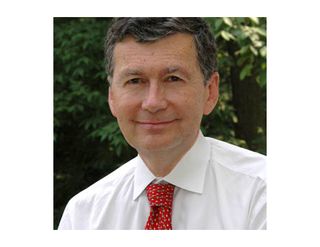Hundt on Zero Rating: FCC Shouldn’t Fight ‘Free Stuff’

WASHINGTON — Former Federal Communications Commission chairman Reed Hundt signaled Wednesday he thinks the agency is going to have to allow for some form of zero-rating plans.
Hundt, a Democrat who headed the FCC during President Clinton’s first term, was paired in a lively discussion with current Republican FCC commissioner Michael O'Rielly at the Multicultural Media, Telecom and Internet Council’s 14th annual Access to Capital and Telecom Policy Conference in Washington Wednesday (July 13).
Asked about the FCC’s current investigation into zero-rating plans under its network-neutrality general conduct standard, Hundt said he thought the agency was going to have to decide that people — in this case, broadband providers that carve specific services out from usage-based pricing plans — are going to have to be allowed to give things away for free.
“Being against free is not very popular,” he added.
O’Rielly said he did not want the FCC to foreclose the kind of experimentation represented by zero rating plans. He said the agency’s investigation has caused companies to keep some offerings on the sideline while awaiting a decision, and complained that the general-conduct standard has no process for concluding debate.
The pair diverged sharply over the FCC's recent court victory in Internet-service providers’ challenge to that general conduct standard and other parts of the Open Internet order.
Hundt said the FCC’s legal victory was second only to the ruling establishing the agency’s jurisdiction over telephone regulation, which came during his tenure. Had the U.S. Court of Appeals for the D.C. Circuit not not also upheld the FCC's jurisdiction over regulating a free and open Internet, the commission would be essentially out of business, and wouldn’t be able to serve as a watchdog for innovative minority entrepreneurs.
Multichannel Newsletter
The smarter way to stay on top of the multichannel video marketplace. Sign up below.
O'Rielly, who voted against the order, said the court should not have blessed the FCC's adoption of prescriptive rules absent any evidence of a problem, saying the zero-rating debate vetting under the general conduct standard was a prime example of companies trying to innovate and build a new business, but having to worry that the FCC could jump in anytime, on anything, and decide after the fact it was out of bounds.
O'Rielly said he had talked to manufacturers who had changed product lines because of the decision.
Each was asked which FCC priorities they would like to see under the next presidential administration. O'Reilly said he would like to see some humility and collegiality. Citing a former boss, he said if neither side is asked to bend on principles, there should room for common ground in the middle, within the bounds set by Congress in statute.
Hundt, who pointed out he was a former law school classmate of presumptive Democratic nominee Hillary Clinton (who would not go out with him, he added), was more specific.
He pointed out that as the FCC is rolling out its plan for freeing up spectrum for 5G this week, and said buildout rules would need to be in place to insure the new technology is rolled out everywhere and to everyone, regardless of income or geography.
Hundt also said that the FCC might look for more progressive ways to fund its programs (he conceded such funding was essentially a tax). He did not say exactly which programs he was talking about, but did talk elsewhere about Lifeline and e-rate subsidies. He said he did not want to give away too much about what Mrs. Clinton was thinking, but suggested that “those who have a lot of money could pay a greater proportion.”
Contributing editor John Eggerton has been an editor and/or writer on media regulation, legislation and policy for over four decades, including covering the FCC, FTC, Congress, the major media trade associations, and the federal courts. In addition to Multichannel News and Broadcasting + Cable, his work has appeared in Radio World, TV Technology, TV Fax, This Week in Consumer Electronics, Variety and the Encyclopedia Britannica.

